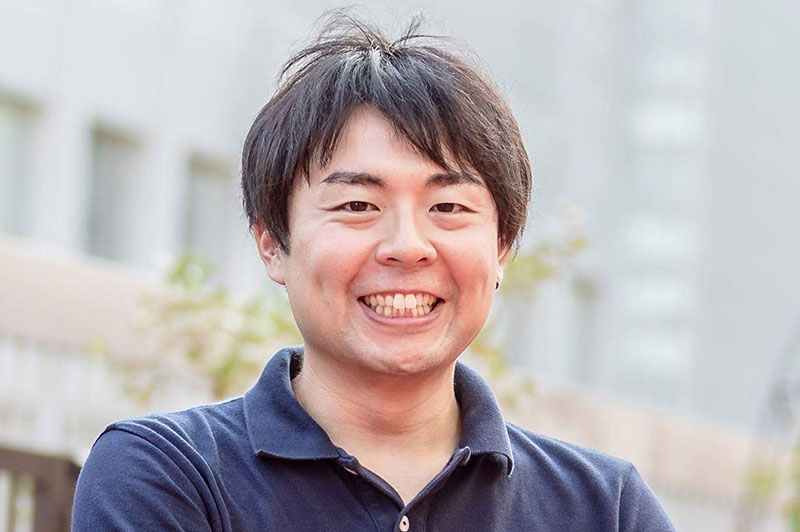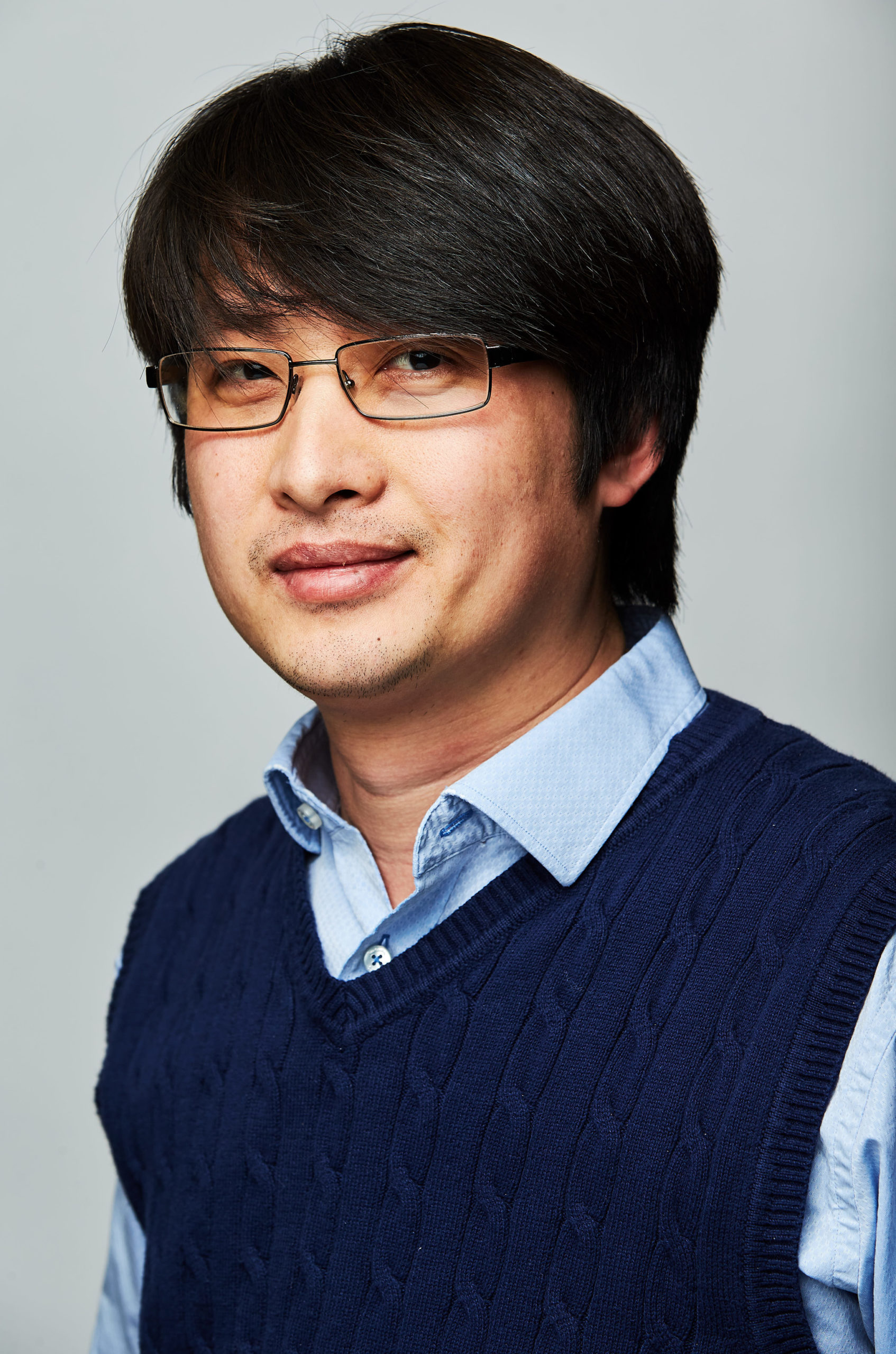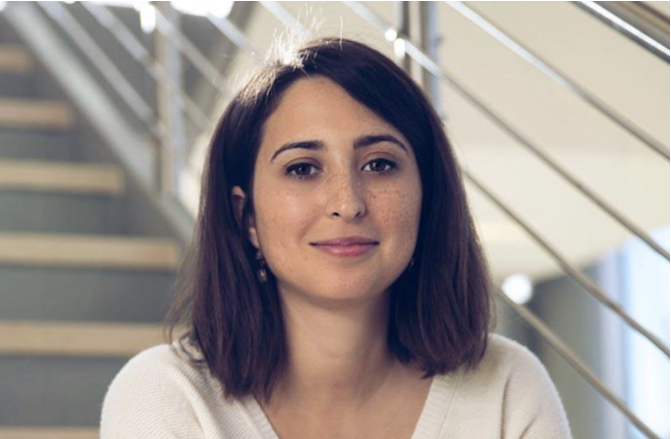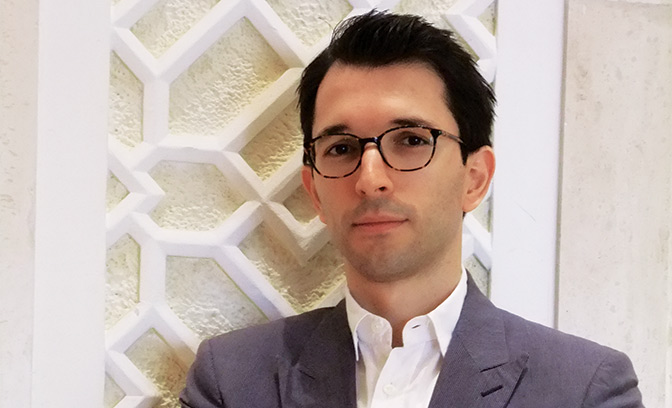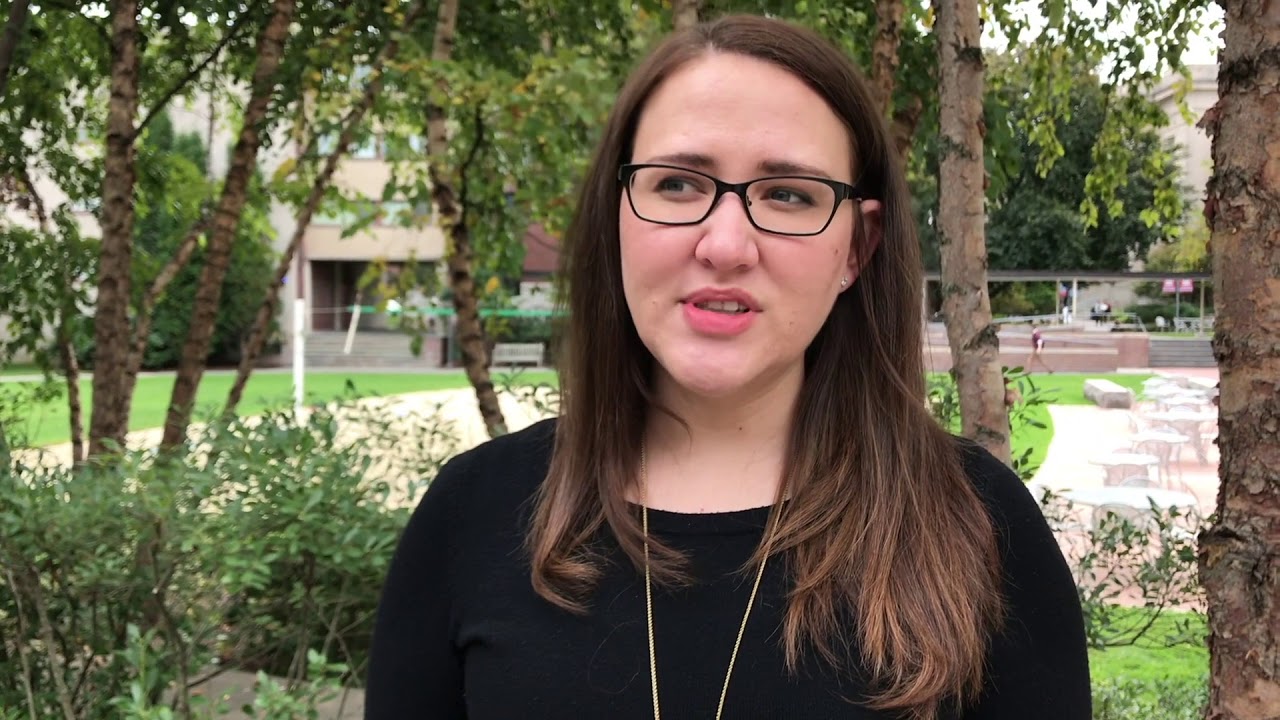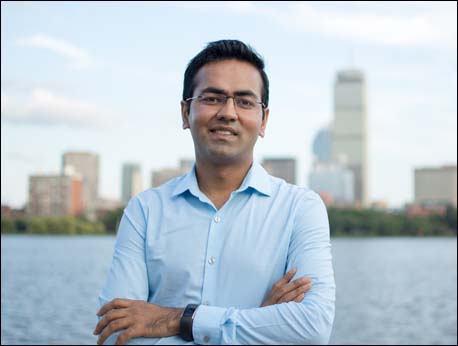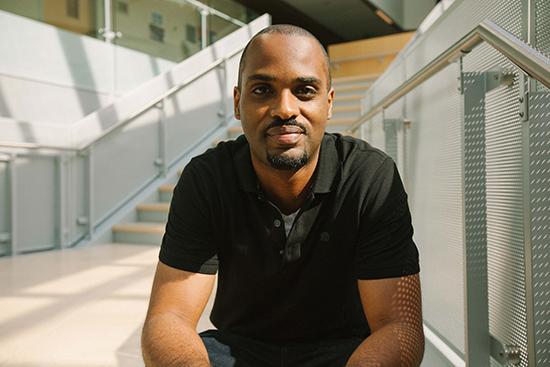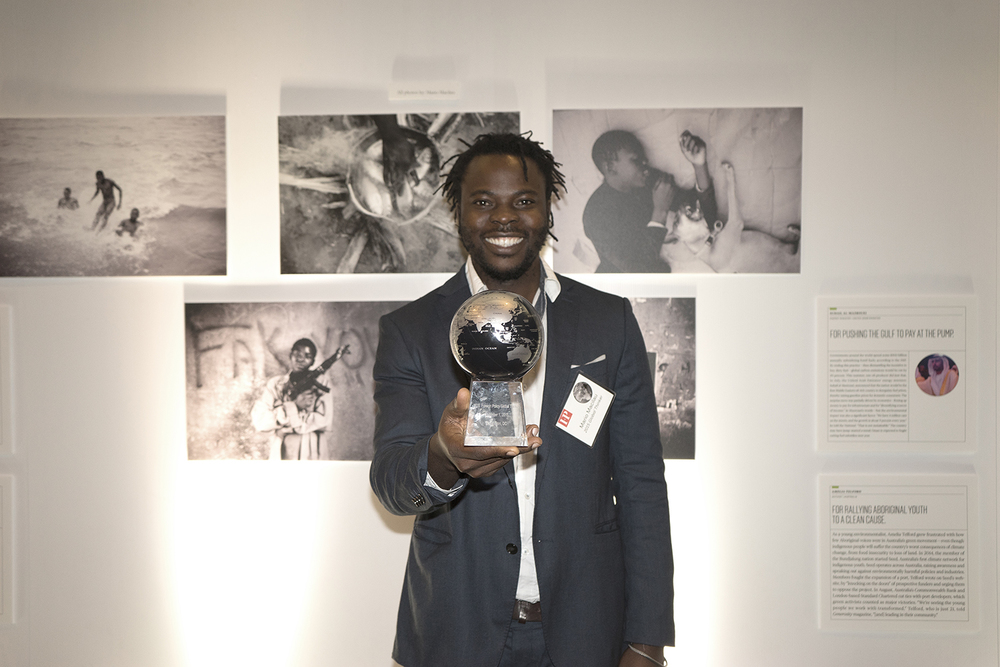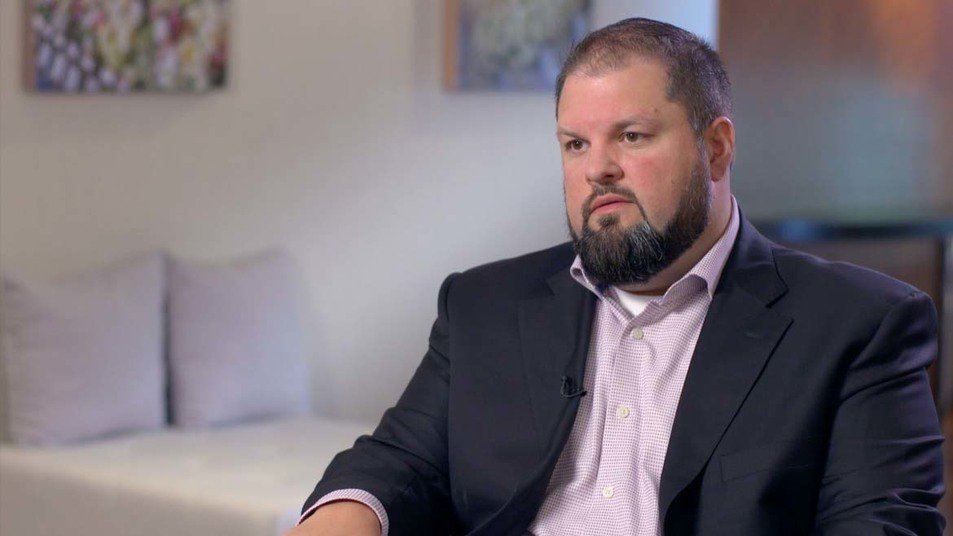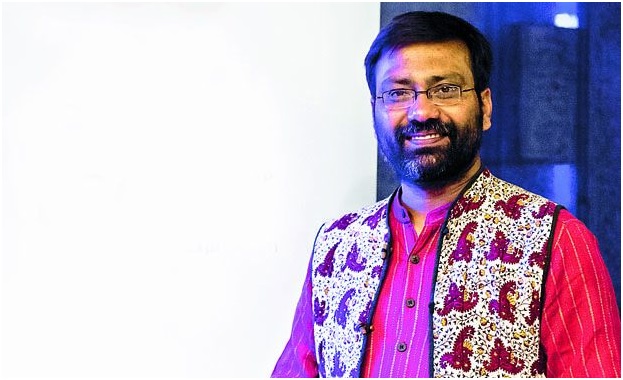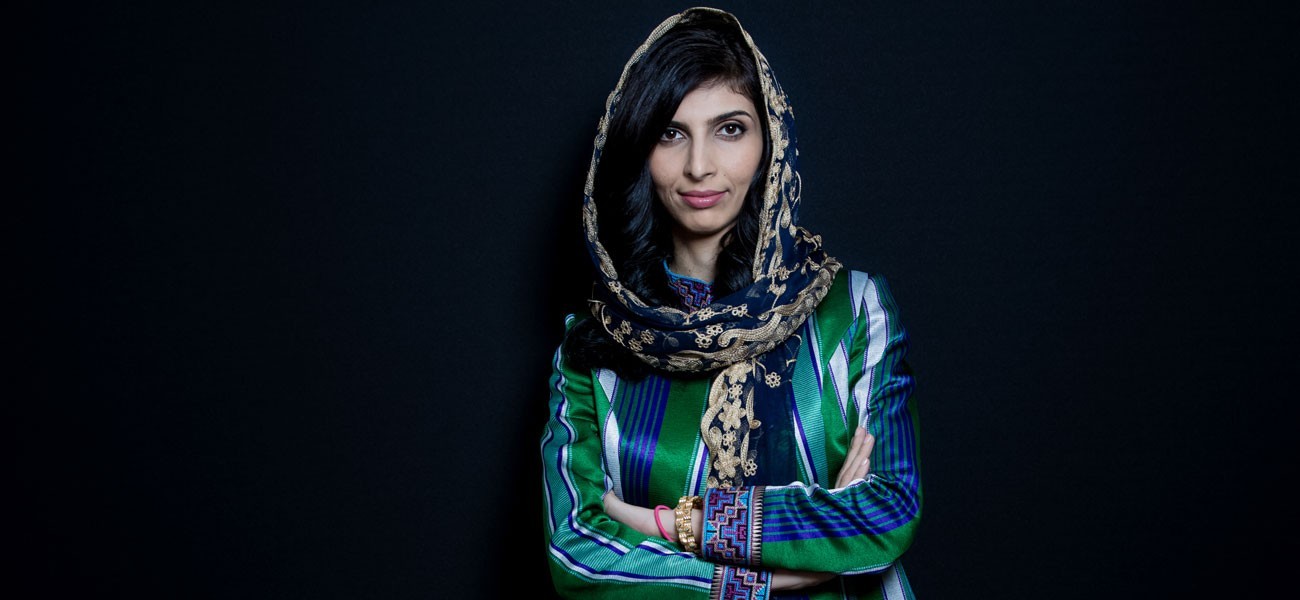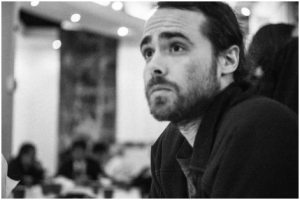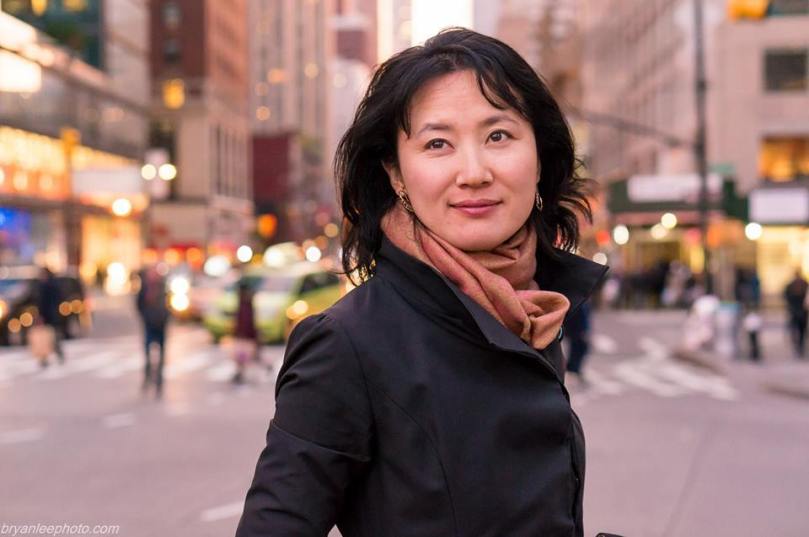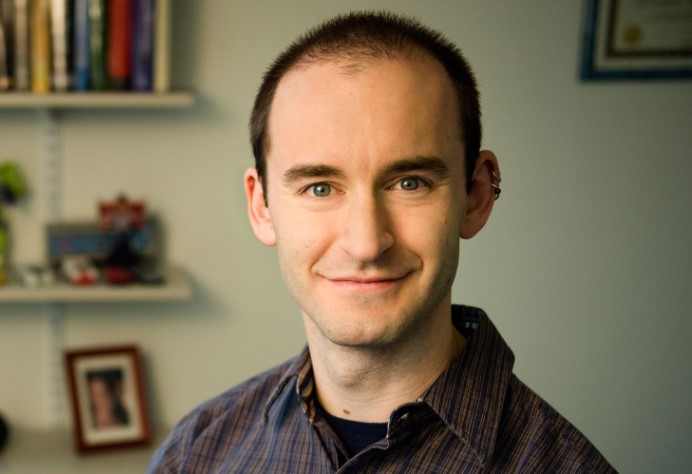Young Leaders
Yusuke Sugomori is a computer scientist specializing in machine learning and deep learning, and the co-founder and CTO of MICIN, a leading medical-tech startup in Japan. MICIN, which raised $10 million in Series A funding, is working to drastically improve the maintenance, organization and utilization of patients’ medical data in Japan through the use of artificial intelligence.
Yusuke is also an active and prolific educator. Since 2016 he has been a Visiting Lecturer at the University of Tokyo, where he teaches on topics related to deep learning, and regularly lectures on artificial intelligence at some of Japan’s—and the world’s—largest companies. Yusuke has published five books on deep learning in English and Japanese. His books have also been translated into Chinese and Korean. Yusuke and his work have been featured in several Japanese business or technology publications, including Nikkei Computer.
Prior to co-founding MICIN, Yusuke spent three years as a Creative Technologist at Dentsu, Japan’s largest advertising agency, during which he was seconded to Google’s New York office. Yusuke received his B.S. from the University of Tokyo’s Faculty of Engineering and his M.S. in Technology Management for Innovation from the University of Tokyo Graduate’s School of Engineering.
Dinh Quy NGUYEN, Ph.D.
Development Manager in Mitsubishi Electric, USA
Co-founder at VietSearch
Dr. Nguyen Dinh Quy is currently a Development Manager and Senior R&D engineer in Mitsubishi Electric in Cambridge, MA, USA. He is working on research collaboration with MIT on Artificial Intelligence (AI), Machine Learning and Factory Automation. Previously, he was a Project Manager and Senior Electrical Engineer at Schlumberger Ltd. for digital transformation and process automation. He hold doctoral degree on electrical and electronics engineering from Nanyang Technological University (NTU) in Singapore.
In addition, he is a co-founder of VietSearch team and website for a large database collection and statistics on Vietnamese professionals and communities over the world. VietSearch has been awarded and recognized in nationwide as a future IT platform for Vietnamese people connecting and collaborating to foster Vietnam’s education and business. He was also a co-founder and president of the Vietnamese Youth Volunteer (VYV) Organization from 2006. VYV is a non-profit organization to help difficulty children in Vietnam.
Walter Langelaar is an artist and researcher whose work in media arts and design questions our digitally networked cultures and infrastructure through sculpture, installation, online performance and critical intervention. Walter studied Fine Art at the AKI in Enschede, graduating with a double major in Conceptual Art and New Media Art, before continuing his studies in Media Design (MA) at the Piet Zwart Institute in Rotterdam, under supervision of Matthew Fuller and Florian Cramer.
In 2017, he co-founded SAM, an AI Politician, which aims to raise awareness as well as pose critical perspectives on AI cloud infrastructure, blockchains and social media mining while contextualising these tools in relation to contemporary Internet culture, political science and e-governance. His broader research agenda is concerned with the plethora of recording devices employed in the post-Snowden spheres of networked interaction design, and how we may subvert the use of these devices from their initial states of surveillance towards new modes of awareness and cultural relevance.
Walter’s work is shown in numerous venues across the European and international media arts scene such as transmediale and CTM, Videotage, Medialab Prado, DEAF and v2, FILE Festival, Ars Electronica, iMAL, Montevideo/NiMK, Piksel.no, and in more traditional art institutes such as MuseumsQuartier Vienna, the Hammer Museum, Dokumenta, Jeu de Paume, Casino Luxembourg, Museo del Traje and Kunsthallen Nikolaj. Walter received several awards for his personal and collaborative projects, including the Internet Society (ISOC) award for ‘Internet and the Arts’, Rene Coelho award, Prix Ars Electronica and the Virtueel Platform ‘Best Practice Award’.
Angela Schoellig, leads the Dynamic Systems Lab at the University of Toronto, and has developed algorithms that allow robots to learn together. Her algorithms are helping self-driving and self-flying vehicles move around more safely.
As a PhD student at the Swiss Federal Institute of Technology in Zurich, Schoellig worked with others to develop the Flying Machine Arena, a 10-cubic-meter space for training drones to fly together in an enclosed area.
In 2010, she created a performance involving a fleet of UAV’s that flew synchronously to music. To do so, she developed algorithms that allowed the drones to adapt their movements to match the music’s tempo, and to coordinate with one another to avoid collision, without manual control by researchers. In 2017, she was named as one of 35 Innovators under 35 by MIT Technology Review.
Sarah Cotterill, PhD, College Fellow in Psychology at Harvard University. She conducts research on political misinformation, as well as decision-making in the context of charitable giving, using experimental and machine learning techniques. She has an equal interest in statistics and methodology, including deep learning, regression (and variants of the generalized linear model), and survey/experimental design. Her written work, featuring insights from her research and from the broader field of psychology, has been published in The New York Times, The Boston Globe, and Psychology Today.
She is currently the Secretary of MDI’s AIWS Standards and Practice Committee, which is established to ensure ethical development of AI worldwide.
Kevin Roose is a technology columnist for The New York Times and a writer-at-large for The New York Times Magazine. His column, “The Shift,” examines the intersection of tech, business, and culture.
He is the author of many interesting articles concerning tech and business, and is the New York Times bestselling author of two books, “Young Money” (2014) and “The Unlikely Disciple” (2009).
He has appeared on “The Daily Show with Jon Stewart,” CNN, NPR, MSNBC, CNBC, and many other TV and radio outlets, is a regular guest on “The Daily,” and has appeared on Longform and other podcasts. He is part of a team that won the 2018 Gerald Loeb Award for breaking news.
In 2015, he was named to Forbes’s “30 Under 30” list and Time’s list of the 140 best Twitter feeds, and his work has been featured in The Best American Business Writing, GQ, Esquire, Vanity Fair, and other publications.
Ian Goodfellow (PhD in machine learning, University of Montreal, 2014) is a research scientist at Google. His research interests include most deep learning topics, especially generative models and machine learning security and privacy. He invented generative adversarial networks, was an influential early researcher studying adversarial examples, and is the lead author of the MIT Press textbook Deep Learning. He runs the Self-Organizing Conference on Machine Learning, which was founded at OpenAI in 2016.
He was named as one of 35 Innovators under 35 by MIT Technology Review. He wondered if two neural networks could work in tandem and invented a way for neural networks to get better by working together. “You can think of generative models as giving artificial intelligence a form of imagination,” Goodfellow says.
Adrienne Felt leads Chrome’s usable security team. They are responsible for building (and improving) browser security features that we can see, like security indicators, browser warnings, and permissions. One of her major initiatives is promoting HTTPS: increasing HTTPS adoption among developers and explaining its value more clearly to end users. She does a mix of frontend work (building UI), experimental design, large-scale data analysis, and managing.
Previously, she was a research scientist on Google’s security research team. Before she got to Google, she earned a PhD in Computer Science from UC Berkeley.
In 2017, she was named as one of 35 Innovators under 35 by MIT Technology Review by leading the push for a more secure Internet.
Iyad Rahwan is the AT&T Career Development Professor and an Associate Professor of Media Arts & Sciences at the MIT Media Lab, where he leads the Scalable Cooperation group. A native of Aleppo, Syria, Rahwan holds a PhD from the University of Melbourne, Australia, and is an affiliate faculty at the MIT Institute of Data, Systems and Society (IDSS).
Rahwan’s work lies at the intersection of the computer and social sciences, with a focus on collective intelligence, large-scale cooperation, and the social aspects of Artificial Intelligence. He led the winning team in the US State Department’s Tag Challenge, using social media to locate individuals in remote cities within 12 hours using only their mug shots. Recently, he crowdsourced 30 million decisions from people worldwide about the ethics of AI systems. Rahwan’s work appeared in major academic journals, including Science and PNAS, and features regularly in major media outlets, including the New York Times, The Economist, and the Wall Street Journal.
Jenn Halen is a fellow at the Berkman Klein Center. She works on research and community activities for the Ethics and Governance of Artificial Intelligence Initiative.
Jenn is a doctoral candidate in Political Scientist at the University of Minnesota and a former National Science Foundation Graduate Research Fellow. Her research broadly focuses on the ways that new and emerging technologies influence, and are influenced by, politics. She will study the complex social and political implications of advanced machine learning and artificial intelligence, especially as it relates to issues of governance. She also works on issues of cyber security, human rights, and social justice.
Dinesh Bharadia is a researcher at CSAIL, MIT. He studies networks and wireless communication. After obtaining his bachelor degree in Electrical Engineering from Indian Institute of Technology (IIT) at Kanpur in Uttar Pradesh, he came to Stanford to pursue his MS and PhD. As a PhD at Stanford he commercialized his research at Kumu Networks, which allows radios to simultaneously transmit and receive signals at the same frequency channel. This problem had stumped scientists for almost 150 years. An analogy to this would be, allowing humans to shout at the top of their lungs while simultaneously listening to weak whispers. This technology makes it possible to double the efficiency of the current spectrum.
He has just been honoured with the 2016 Marconi Society Paul Baran Young Scholar Award, for his outstanding contributions in radios network. Before that, he was named as one of 35 Innovators under 35 by MIT Technology Review, joining the likes of Google founders Larry Page and Sergey Brin, Facebook founder Mark Zuckerberg, and major leaders from Apple, PayPal and other tech companies.
Ryan C. Maness is a Visiting Fellow of security and resilience studies in the Department of Political Science at Northeastern University. Before that, he was Visiting Professor of International Relations in the Department of Political Science at SUNY at Buffalo State College (2014-2015), Adjunct Professor of International Relations in the Department of Political Science at University of Illinois at Chicago (2014), and Graduate Lecturer in International Relations in the Department of Political Science at University of Illinois at Chicago (2012-2013).
Obtaining his PhD degree in Political Science from University of Illinois at Chicago, Dr. Maness has published peer-reviewed articles in Journal of Peace Research, Armed Forces and Society, and Journal of Slavic Military Studies, as well as in Foreign Affairs. He has recently completed two books, Cyber War versus Cyber Realities: Cyber Conflict in the International System (Oxford University Press, 2015) and Russia’s Coercive Diplomacy: Cyber, Energy and Maritime Power (Palgrave Macmillan, 2015). His main focus is the continuation of an empirical cyber incident and dispute dataset and Russian energy policies in post-Soviet space. His new book project uses content analysis to study the concept of state coercion in cyberspace.
Seny Kamara is an Associate Professor of Computer Science at Brown University. From 2008 to 2016, he was a researcher at Microsoft Research (Redmond Lab). He studied computer science at Purdue and then John Hopkins University, earning first a Bachelor of Science, then a Master of Science in Engineering, and then a Doctorate of Philosophy.
His work focuses on designing and analyzing cryptographic algorithms, protocols and systems; often motivated by privacy issues in cloud computing, surveillance and databases. He maintains interests in various aspects of theory and systems, including applied and theoretical cryptography, data structures and algorithms, cloud computing, databases, economics, technology policy and networking. He served as Program (co-)Chair for ACM Cloud Computing Security Workshop (CCSW ’12) and Workshop on Surveillance and Technology (SAT ’15). He has been recognized as a future world leader in encrypted search.
Mário Macilau (1984, Mozambique) was born in Maputo where he currently lives and works. In newly independent Mozambique, during the most critical phase of the civil war, his family struggled with financial difficulties and moved from the province of Inhambane to Maputo capital in search of a better life. At the age of ten, he began to work in a small market frequented by the middle / upper class and helping to carry the groceries and washing cars at the park in an effort to support his family.
Macilau started his journey as photographer in 2003 and went professional when he traded his mother’s cell phone for his first camera in 2007, he specializes in long term projects that focus on living and environmental conditions over the time that affects the social isolated groups. His work has been recognized with awards and featured regularly in numerous solo and group exhibitions both in his home country and abroad including: The Pan African group exhibition during the Biennale of African Photography in Bamako, Mali 2011, VI Chobi Mela Photo Festival in Dhaka, Bangladesh 2011, Photo Spring in Beijing, China 2011, Lagos Photo in Lagos, Nigeria, 2011, BESphoto at CCB – Centro Cultural de Belém in Lisbon, Portugal 2011 and Pinacoteca de Estado de São Paulo in Brazil, the KLM in Kuala Lumpur, Malasya , 2012, The Johannesburg Art Fair 2013, Les Recontres Picha in Lubumbashi, RD Congo, 2013, The Biennale Arts Actuels in Saint Dinis, Reunion Island 2013, The African Art Auction in London, England, 2013 and among others. He has also completed a number of artistic residencies.
He was named one of Foreign Policy’s 100 Global Thinkers of 2015 for his standout contributions in using photography as his language to educate and inform for positive changes and influences.
Jeremy Samide is an industry-recognized cyber security expert with over 15 years of leading-edge private sector, government security consulting and research and development work. He is now the Lead Consultant to Stealthcare Labs, and fellow of Michael Dukakis Leadership Program at Boston Global Forum
Jeremy advises an international client base on solutions from full service managed cyber security services to research and development on intelligent predictive analysis technology in recognizing cyber threats before they occur. Jeremy has expertise in the analytical, technical, advisory and tactical level on next generation security threats.
Mr. Samide has advised many startups and was the CEO of E-merging Technologies Group, Inc., a professional services firm specializing in security, technical, cyber, intelligence, and policy support for the US Government, allied foreign governments, private sector markets and the UHNWF. Under Samide’s leadership, Inc. Magazine ranked E-merging Technologies Group in the top 20% of the fastest growing privately held small businesses in the United States for five years in a row (2012, 2011, 2010, 2009, and 2008). Mr. Samide was also credited with putting ETG on the distinguished Washington list; Washington Technology Fast 50. This honor showcases the 50 fastest growing small businesses in the government market.
Mr. Samide most recently, in conjunction with Federal law enforcement has consulted to both large and small businesses on the cyber security risks associated with organizations conducting business within the People’s Republic of China.
Mr. Samide is a sought after cyber security expert speaker globally with recent talks in Rome, Hamburg, Madrid, London, Lausanne, Toronto and Dallas.
Mr. Samide was also nominated as a Finalist in Ernst & Young’s Entrepreneur of the Year. The Ernst & Young’s Entrepreneur of the Year is the world’s most prestigious business award for entrepreneurs. Recognized globally, the award honors the most outstanding entrepreneur who inspire others with their vision, leadership and achievement.
Shubhranshu Choudhary is a Knight International Journalism Fellow and the Founder of CGNet Swara, an Indian mobile phone service that allows citizens to upload and listen to local reports in their own dialect without the need for a Smartphone or an internet connection. He won the 2014 Digital Activism Award from the U.K.-based charity organization Index on Censorship for his Central Gondwana Net Swara community radio, and also named one of Foreign Policy’s 2014 “100 Leading Global Thinkers”.
Choudhary was a TV and radio producer for the BBC’s South Asia bureau for eight years, and a reporter for The Guardian’s South Asia bureau for two years. He also was a reporter for five years at the Hindi-language Daily Deshbandhu. He has served as a media trainer for the BBC World Service Trust, the United Nations and Indian universities. He produced the first television coverage of foreign militants operating in Indian Kashmir and conducted the first television interview with the chief commander of the Kashmiri militant organization.
Roya Mahboob is an Afghan entrepreneur and businesswoman. She founded and serves as CEO of the Afghan Citadel Software Company, a full-service software development company based in Herat, Afghanistan.
She has received attention for being among the first IT female CEOs in Afghanistan,where it is still relatively rare for women to work outside the home. On 18 April 2013, Roya Mahboob was named to TIME magazine’s 100 Most Influential People In The World for 2013 for her work in building internet classrooms in high schools in Afghanistan and for Women’s Annex, a multilingual blog and video site hosted by Film Annex, which gives the women of Afghanistan and Central Asia a platform to tell their stories to the world.
She is also known for her work with online film distribution platform and Web Television Network Film Annex on the Afghan Development Project.
Bill is the Founder and CEO of Minds.com, a free, open-source and encrypted social networking platform and mobile app. He administrates social media pages with millions of followers in the alternative news industry and is active in viral media research. He also is advisor of Code to Inspire, a nonprofit organization focusing on education of Afghan female students for better life, and has served as advisor in developing the open source network Word of Word Capital, a global macro investment company based in New York.
Prior to that, he was Marketing Director at Gathering of the Vibes, an annual music and arts festival. He graduated from University of Vermont.
https://www.asahishimbun-saiyou.com/message/archives/49
2017 April – present Tokyo, Digital Innovation
2015 Jan – 2017 March Tokyo, Asahi Media Lab
2013 Dec – 2015 Jan NewYork , Asahi Media Lab
2010 May – 2013 Nov Nagoya, Political News Section
2008 May – 2010 May Seoul and Tokyo, Foreign News Section
2003 Oct – 2008 May Gifu, Toyohashi and Nagoya, Metro News
Member
– Board Member of Online News Association Japan (Japan brunch of the US
Digital Network Association, ONA)
https://www.facebook.com/ONAJapan/
– Fellow of US Japan Foundation
http://www.usjlp.org/members/news.php?id=3226
Activities
– Panelist of SINCA program
Fake news and Media Literacy with Wall Street Journal Editor of Chief https://
www.yokoishikura.com/english/data-news-fake-media-literacy/ Professor Yoko
Ishikura’s HP 2019.01
https://sinca.tokyo/category/3/ Video Clips
– Moderator of Digital Innovation of Media Session @ 政策分析ネットワーク
http://www.policy-net.jp 2018.11
Archives (Available in Japanese)
-映像情報学会誌 デジタルジャーナリズムの未来 : 光と影 (特集 ネットワーク時
代における映像情報メディアの役割と今後) Academic Essay of The journal of
the Institute of Image Information and Television Engineers 2018.03
https://ci.nii.ac.jp/naid/40021495409/
-月刊ジャーナリズム Innovation of Media, Monthly Magazine Journalism
2017.09
https://www.amazon.co.jp/Journalism-ジャーナリズム-2017年-9月号-朝日新聞社
ジャーナリスト学校/dp/4022811072
Rebecca Leeper is a privacy driven interdisciplinary software and network engineer consultant at Data Ductus Inc. At Data Ductus, her work is focused in the telecommunications sector, helping service providers improve their coverage by migrating to automation and the cloud. Rebecca has also pursued research into emerging technologies, particularly AI, and their impact on international and national security at the United Nations in Geneva, Switzerland, The Global Resilience Institute at Northeastern University, and the Belfer Center at Harvard University. Rebecca will be launching the Common Good Digital Framework with the Boston Global Forum and AIWS, a platform purposed at bringing authoritative knowledge and raising awareness about violations of ethical values and standards by governments and large organizations misusing technology. The CGDF will monitor and alert against the misuse of Artificial Intelligence, personal data, and neglect of cyber security
Qualifications and Skills
Privacy Driven Interdisciplinary Software Engineer
BSc (Honors) Computer Engineering, AIWS Practitioner
Excellent technical and business communications skills, written and public speaking. Dedicated to integrating new technology with cross-
functional teams. Skilled in planning and executing on strict deadlines. Strong leadership and team-oriented attitude.
Languages: Java, C++, Python, C#, C, XAML, XML, MySQL, HTML, MIPS
IDEs & Tools: PyCharm, IntelliJ, Visual Studio, Xcode, Sublime, Atom, Cisco NSO, Camunda Workflow Engine, Git, ViroMedia, Docker,
Yang, Ansible, Git, Lux, pytes, Junit, Squarespace, Mailchimp, Microsoft Office
Awards and Honors
Northeastern University Commencement, 2019 Class Orator (1:34:08) May 2019
• Selected to deliver the 10-minute Student Address to 25,000 people at TD Garden
Northeastern University College of Engineering Senior Capstone Competition, 3rd Place Winner May 2019
• Placed 3rd of 20 in technical competition judged by industry leaders in the Greater Boston Area
Order of the Engineer, Inducted Member May 2019
• Association of graduate and professional engineersthat emphasizes leadership, pride, and responsibility in the engineering profession
Blanche Z. Greenberger Award, Recipient May 2019
• Highest award granted to an Alpha Epsilon Phi collegian in recognition of academic achievement, service, and leadership
Professional Experience
Technical
Data Ductus Inc., Maynard, MA August 2019-Present
Software Engineer: Network and software engineering consulting
• Contribute software engineering expertise in design and integration of solutions through software lifecycle, from requirements
definition, development, testing, through deployment
• Participate in sales and client presentations due to ability to translate user needs into software solutions
• Address application technical bugs and issues for timely resolution
Consulting Projects:
Service provider greenfield/brownfield provisioning (Python, pytest, Java, Lux, NSO, Yang); Network reconciliation (Python, NSO);
Various automation scripting (Python)
Data Ductus Inc., Maynard, MA July-December 2018
Software Engineer (Full-Time Co-Op): Network and software engineering and consulting
• Designed and prototyped new software service integrating open source platforms (Ansible, Camunda, Python)
• Developed and integrated first Camunda integration test, and multiple unit tests in a telecommunications migration project (Java,
Junit, Powermockito)
• Developed software enhancements and remediated multiple bugs in agile development cycle (Python, Java)
• Critical analysis and Threat Model evaluation of software in Cisco Secure Development Lifecycle (CSDL) toolbox
Textron GeoSpatial Solutions, Wilmington, MA July-December 2017
Software Engineer (Full-Time Co-Op): Software application enhancements and maintenance
• Remediated multiple bugs in mature satellite imagery exploitation WPF application (C++, C#, and XAML)
• Developed and integrated voice control into the application
Textron Weapon and Sensor Systems, Wilmington, MA July-December 2016
Computer Engineer (Full-Time Co-Op): Research and development of a correlation tracker
• Developed five real time standard tracking demos, integrating and applying the openCV image processing library (C++)
• Discovered the VOT (Visual Object Tracker Database) for benchmark standards of state-of-the-art correlation trackers
Cyber Policy
Northeastern University, Global Resilience Institute, Boston, MA January 2019- May 2019
Research Assistant, CINet Project
Space Security Conference 2019, United Nations Institute for Disarmament Research, Geneva, Switzerland May 2019
Northeastern University Delegate
AI For Good Global Summit, International Telecommunications Union, Geneva, Switzerland May 2018, May 2019
Northeastern University Delegate
Harvard University, Belfer Center, Cambridge, MA August 2017-December 2019
Research Assistant, Information Sharing Project
Relevant Research Papers:
• Can They Block Me!? A Review of How Courts are Qualifying Government Social Media Accounts with Respect to Public Forums, 2019
• Racial Facial? The Ethical Considerations of Facial Recognition Technology Deployed in Body Worn Cameras, 2019
• Regulating Fully Autonomous Weapons, 2017
• Regulation on Cyber Warfare, 2017
Public Service
Committee to Elect Damali Vidot, Chelsea, MA August 2019-November 2019
Communications Director and Campaign Scheduler
• At-Large candidate earned the most votes in a municipal election since 2011, doubling Hispanic and low-income voter turnout
• Lead and developed media and communications strategy increasing Facebook and Twitter followers by 20%
• Wrote, edited, and designed press releases, all social media content, newspaper ads, weekly newsletters and community outreach
efforts, and campaign literature
• Designed, developed, and wrote all content for candidate website: https://www.votedamali.org/
• Coordinated, managed, and lead scheduling, staff meetings, forums, and events
Global Governance of International Security & Politics of Diplomacy Course, Geneva, Switzerland January-July 2019
Teaching Fellow and Leadership Assistant
• Assisted with curriculum planning, grading organization of high-level meetings at the United Nations, and candidate interviewing
• Delivered full-class lecture: Emerging Cyber Security Threats
• Served as head academic advisor to all STEM students
The Cambridge Women’s Center, Cambridge, MA July 2017-July 2018
Volunteer
• Weekly shifts supervising the domestic violence hot-line and providing support to visitors and members
• IT support and initiated migration to Google Drive for volunteer and organization documents, scheduling, and communications
Global Governance of International Security & Politics of Diplomacy Course, Geneva, Switzerland May-June 2017
Visiting Student Researcher
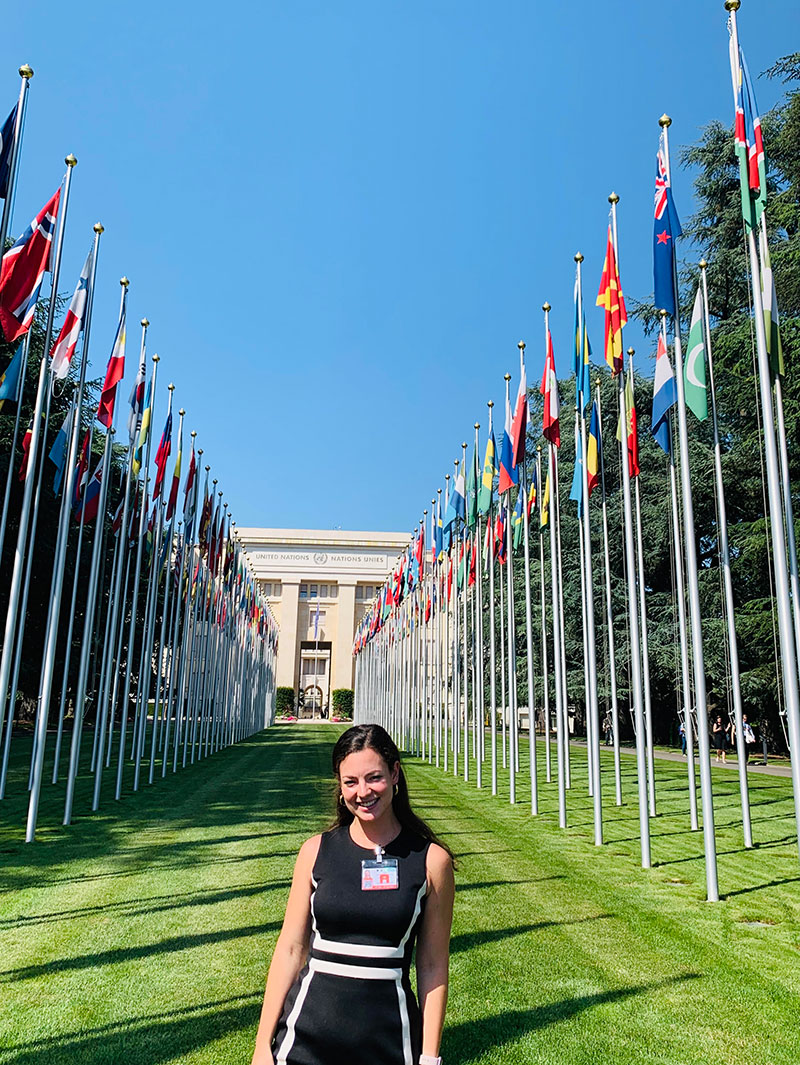
Academic History
Northeastern University, Boston, MA | GPA 3.501 May 2019
Bachelor of Science in Computer Engineering, Cum Laude, with a minor in International Security Studies.
Computer Engineering and Security Studies Electives:
Introduction to Machine Learning and Pattern Recognition; Law and Ethics of Digital Technology; Computer Architecture &
Organization; Computer Systems; International Conflict & Negotiation; The Arab-Israeli Conflict; Ethnic Political Violence
Leadership and Activities:
• College of Social Sciences and Humanities, International Conflict and Negotiation, Teaching Assistant Fall 2018
• Northeastern Husky Call Center, Student Fundraiser January-August 2018
• Northeastern Office of Alumni Relations, Students Today Alumni Tomorrow, Student Leader 2018-2019
• Department of Electrical and Computer Engineering Student Advisory Board, Student Representative 2017-2019
• The Gordon Institute Engineering Leadership Program, Selected Participant July-December 2017
• Embark: The Undergraduate Applied Science and Engineering Review, Co-President 2018 2016-2019
• Student Government Association, Operational Appeals Board, Justice 2016-2019
• Alpha Epsilon Phi, Phi Omega Chapter (2014-2019), President 2018 2014-2019
– Chapter of the Year 2018, Community Service Award 2018, Risk Management Award 2018
Relevant Technical Projects:
TWIST: Through-Wall Imaging System & Technology Spring 2019
• Integrated MIT Prof. Dina Katabi’s through-wall visualization research with augmented reality (ViroMedia)
Convolutional Neural Network (CNN) to Classify Street Signs June 2018
• Designed a six-layer CNN that achieved 90% accuracy on the Belgium Street Sign dataset (Python, Tensorflow)
Interactive Website Linked to Backend SQL Database Fall 2015
• Full stack development creating website with user access to backend database (HTML, Microsoft Access, MySQL).
RESEARCH INTERESTS
Professor Wilson’s research interests are broadly focused on security, privacy, and transparency on the web. Specific active areas of interest include: algorithm auditing, which uses controlled experiments to understand whether black-box algorithmic systems are unfair or discriminatory; understanding online tracking and developing techniques to improve online privacy; and measuring and improving public key infrastructures like SSL/TLS and DNSSEC.
EDUCATION
- PhD in Computer Science, University of California, Santa Barbara
- MS in Computer Science, College of Engineering at University of California, Santa Barbara
- BS in Computer Science, College of Creative Studies at University of California, Santa Barbara
BIOGRAPHY
Christo Wilson is an Associate Professor in the Khoury College of Computer Sciences at Northeastern University. He is a founding member of the Cybersecurity and Privacy Institute at Northeastern, and serves as director of the BS in Cybersecurity program. He is a 2019 Sloan Fellow and a 2019-2020 Fellow at the Berkman Klein Center for Internet & Society. Professor Wilson received his PhD from the University of California, Santa Barbara, working under Professor Ben Y. Zhao. His work is supported by an NSF CAREER award, the Sloan Foundation, the Mozilla Foundation, the Knight Foundation, the Democracy Fund, the Data Transparency Lab, the European Commission, Google, and Verisign Labs.
Professor Wilson’s research has earned widespread recognition. He has received best paper awards at SIGCOMM, NDSS, and ICWSM, and honorable mentions at CHI and CSCW. His work on improving TLS security was recognized with an IEEE Cybersecurity Award for Innovation, and his work on understanding the impact of policy on DNSSEC deployment was honored with an IRTF/Internet Society Applied Networking Research Prize. Additionally, Professor Wilson’s work to model the privacy implications of online advertising received a Privacy Papers for Policymakers Award from the Future of Privacy Forum. His work has been covered extensively in the press, including the CBS Evening News, Good Morning America, The Wall Street Journal, The Boston Globe, and The Washington Post.
Professor Wilson is an active member of several academic communities. In 2018, he served as co-General Chair of the inaugural ACM Conference on Fairness, Accountability, and Transparency (FAT*), and he continues to serve on the conference’s executive committee. He regularly serves on the program committees for conferences such as IMC, WWW, ICWSM, IEEE Security and Privacy, and PETS.




